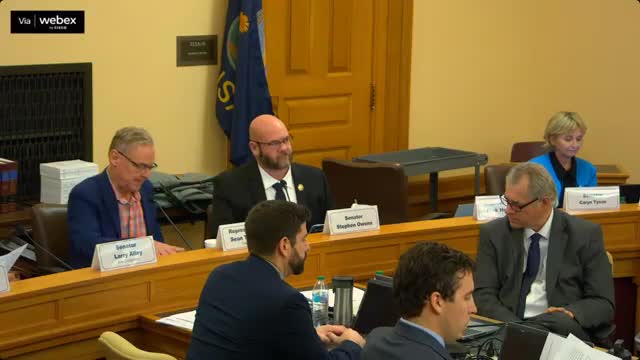Supporters urge protection for low-impact home-based businesses; opponents ask for narrow clarifications
Get AI-powered insights, summaries, and transcripts
Subscribe
Summary
Advocates asked the committee to pass a bill protecting "no-impact" home-based businesses from blanket local licensing or permitting requirements, while opponents and some members sought clarifications on Airbnb, HOAs and services that could generate on-site traffic or safety issues.
Supporters from the Goldwater Institute and other advocacy groups told the committee a bill under consideration would protect entrepreneurs who run unobtrusive, "no-impact" businesses from being required to obtain local permits or licenses.
Taylor Walker (Goldwater Institute) said the measure would remove burdensome local permitting requirements for businesses conducted entirely inside a home that create no traffic, noise or visible impact on the neighborhood. "If a business is contained entirely inside a home and has no impact on the surrounding areas, there isn't a reason for local government to place burdensome regulations on entrepreneurs," Walker said.
Advocates argued the change would benefit caregivers, parents, veterans and others who rely on flexible home-based work for household income. They cited other states (Texas, West Virginia, Florida, Iowa and Missouri) that have adopted similar protections.
Committee members and opponents asked for clearer statutory definitions and carve-outs. Questions centered on short-term rentals (Airbnb), homeowner association covenants, on-site employees or customers, and service trades such as dog grooming or motor repair that may generate activity or safety concerns. Tanner Temple, a supporter, said the bill does not intend to permit high-impact storefronts or vehicle yards but acknowledged several clarifications requested by committee members would be useful.
The House-passed language contains an explicit exception allowing homeowners association bylaws to prevail if the HOA has a "directly applicable restriction" and there is a "reasonable likelihood" the home business would be noncompliant with the act. Committee members asked the bill's sponsors to work with opponents and local governments to tighten language on parking, short-term rentals and safety-sensitive service-based businesses.
Ending: Sponsors and some opponents agreed to continue negotiations on narrow clarifications before the bill advances; senators asked staff to follow up on examples of local ordinances (Topeka was cited for requiring a permit for sales on Facebook Marketplace) and to return with suggested technical edits.
